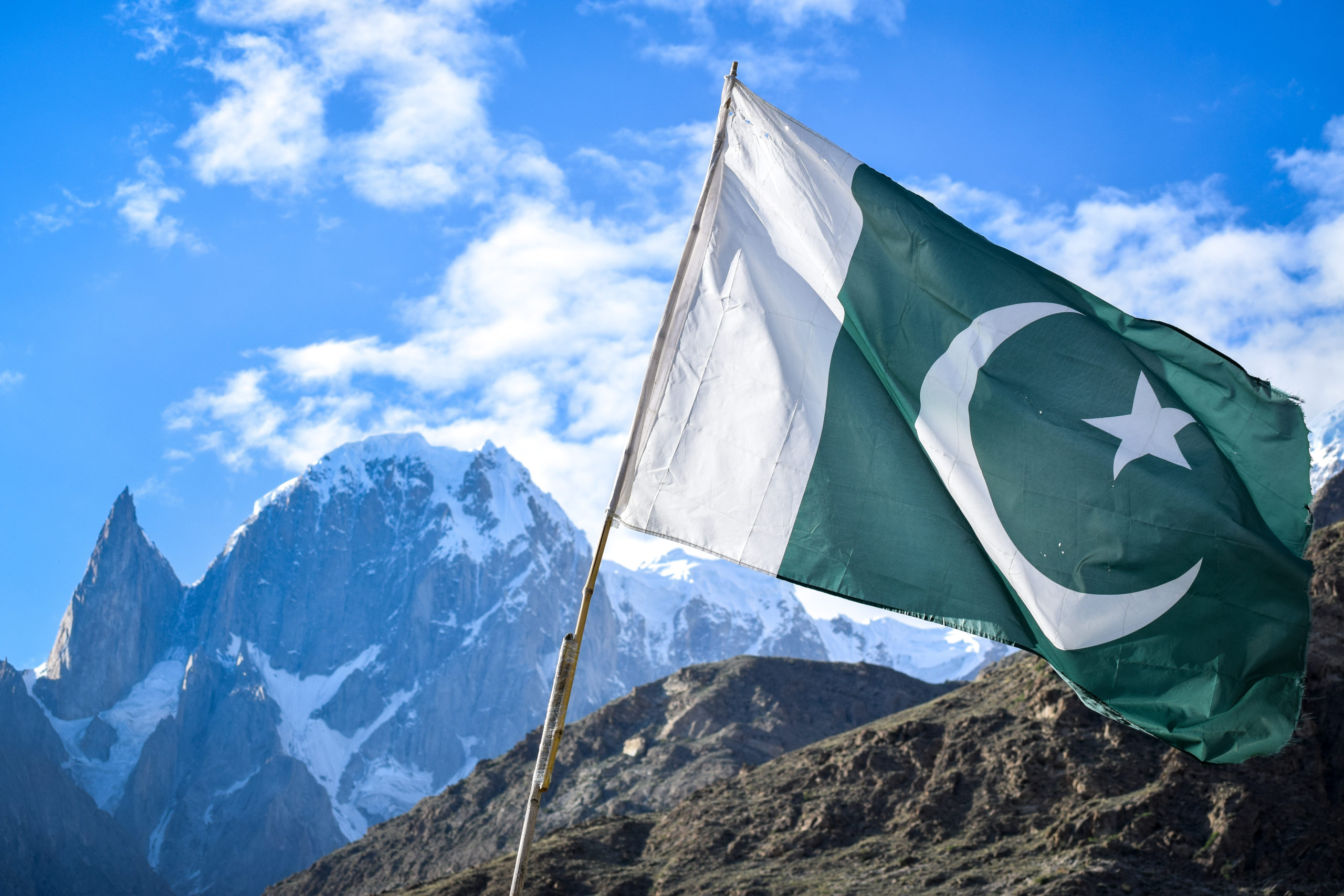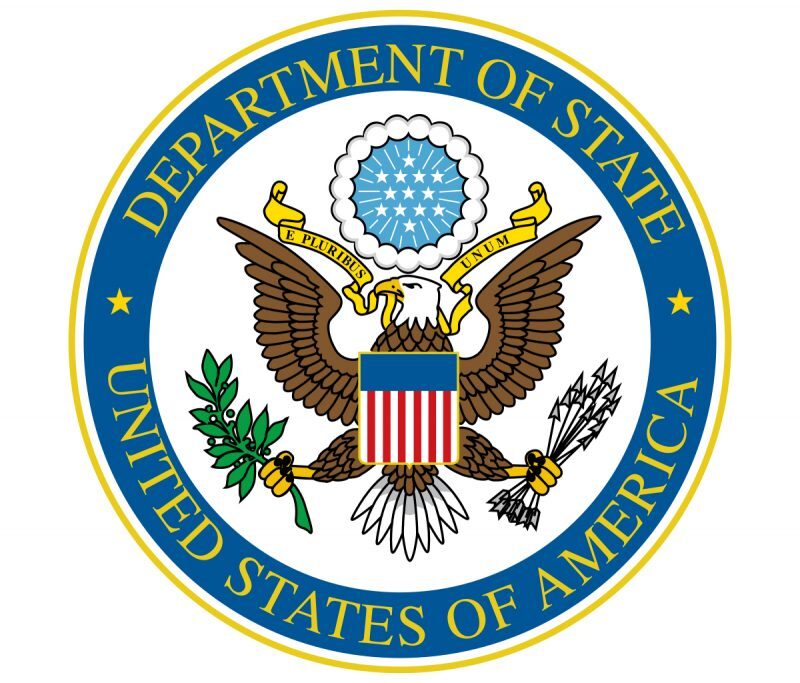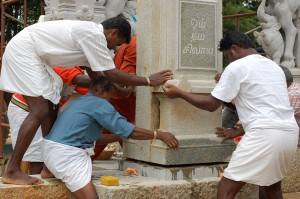
In 2020 several incidents targeting Pakistan’s Hindu, Christian, and Sikh minority were recorded, highlighting a breakdown in government at all levels that has now left the Islamic state’s dwindling religious minority communities vulnerable to annihilation.
It was reported in June that the government of the Islamic Republic of Pakistan would construct a Hindu temple in the capital city, Islamabad, much to the cheer of Pakistan’s dwindling Hindu minority population, who have faced increased persecution over the last decade.
One day after construction commenced, however, local media reported that the government halted building for “legal” reasons and that its construction and government funding would be further reviewed.
In the days leading up to the start of work, there was a feeling that with the construction of such a large temple in the capital city, perhaps Pakistan, under the new leadership of Prime Minister Imran Khan, could actually turn a new page by showing the people and the world that it was serious about starting to protect the religious freedom of its oppressed minorities.
Ultimately, it may not be up to Prime Minister Khan. “The Pakistan Muslim League-Quaid (PML-Q), an ally of Prime Minister Khan’s ruling Tehreek-e-Insaf recently opposed the construction of the temple by claiming that it was ‘against the spirit of Islam,’” the Press Trust of India reported. Days after construction was paused, mobs of angry Muslim men vandalized the temple site and destroyed the partly constructed first wall of the structure.
A July New York Times article entitled “Islamists Block Construction of First Hindu Temple in Islamabad” stated, “A Hindu temple planned for Islamabad, the city’s first, was supposed to be a symbol of tolerance. Instead, violence and controversy have turned it into an emblem of Pakistan’s troubled relationship with its religious minorities.”
To say that Pakistan’s treatment of Hindus and other religious minorities is a “troubled relationship” is putting it mildly. The situation for Pakistan’s Hindu minority is far more grave than the Times implies.
From 1990-2014, nearly 95% of non-Islamic places of worship were confiscated by the Pakistani government and converted into shopping centers, government offices, schools, or other purposes according to a report from the All Pakistan Hindu Rights Movement.
The backlash from Islamist clerics in Pakistan has made the now-halted construction of the mandir a high profile issue. At the time of the announced construction, the clerics issued fatwas and publicly expressed their religious bigotry which have spawned a wave of even greater anti-Hindu sentiment.
Weeks after construction was paused, for example, a video surfaced on Twitter of a Muslim father with his two very young children who warn Prime Minister Khan on camera that if he allowed the temple construction to proceed then he, a boy of four or five years old, would kill a Hindu as if it were his duty. The even younger toddler cheered on in the background, then the father steps back into the frame, smiling, to reiterate his son’s threats to Pakistani Hindus.
Several similar videos have begun to circulate on social media. Days later, a music video in Pakistan from an anonymous singer released a song entitled ‘Hindustani kutton’ (Indian dogs). Over displays of the Pakistan army, his lyrics warn Hindus to keep in line, an attempt to intimidate and further silence the dwindling Hindu community in Pakistan.
Such threats again manifested during this year’s Navratri holiday, where on October 10 a Hindu temple in the Kario Ghanwar in Badin district, Sindh province was vandalized by a young Muslim man who was later arrested, Union of Catholic Asian News reported.
Several months later, the Imams appear to have given Khan the green light to proceed with the temple’s construction, but the question of government funding remains unanswered. Regardless, the damage of their outrage and incitement has been done.
Sadly, these repeated acts of violence and intolerance has reached a new threshold where it is now almost expected that these shameful acts will continue to occur in Pakistan. The moral decay of Pakistan’s government bodies such as the police and judiciary has seeped into the common man who, unsurprisingly, now fears no reprisal. In fact, he’s so emboldened in his embrace of hatred, that he now acts on it by desecrating another man’s house of worship or by destroying the young beautiful lives of 1000 Christian and Hindu girls who are kidnapped, raped, converted to Islam, and sold as child brides or into sex slavery in Pakistan every year. The motivation behind kidnapping and converting Hindu and Christian girls, as opposed to boys, is to put them into religious based reproductive slavery in order to intimidate minorities, particularly minority women, into submission or force them to flee the Islamic republic altogether.
The case of 13-year old Arzoo Lal, a Pakistani Catholic girl, is particularly jarring. On October 13th, she was abducted outside of her home. A couple of days after her parents had been searching for her, Sindh Police informed them that her name had appeared on marriage papers filed by a 44-year old Muslim man claiming she was 18 years old and wanted to convert to Islam. The court sided with the abductor, approved the conversion, and off he went, from a Pakastini courtroom, with someone else’s child under his arm. The parents are still pleading for justice.
Further illustrating Pakistan’s systemic shift towards institutionalized intolerance of religious minorities, media reports state that the Pakistan High Commission has decided to convert the historic Sikh Gurdwara ‘Shahidi Asthan’, a site of martyrdom of Bhai Taru Singh ji at Naulakha Bazaar in Lahore, Pakistan, into a mosque.
Meanwhile, India, the world’s largest democracy, has lodged a complaint with the Pakistan government urging the Islamic state’s authorities not to convert the gurdwara into a mosque. At the same time, the Indian government announced that it has granted long-term asylum to roughly 700 Afghan Hindus and Sikhs, in addition to the hundreds that cross the Pakistan border into India. These persecuted religious minorities in Afghanistan have come under direct threat of radical Islamic militants, who as recently as March 25-26, 2020 launched one-two terrorist strikes on the Sikh gurdwara in Kabul, Afghanistan that claimed 20 lives and then the funeral service the following day. India has now provided a safe and legal opportunity for Afghan Hindus and Sikhs to flee the war-torn country that, similarly to Pakistan, has a strong terrorist network that targets religious minorities in the region’s self-described Islamic states.
The fact is, whether you are a Christian girl walking home from school, a Hindu celebrant of Navratri, or a Sikh worshiper, your life is in constant jeopardy because your religion is under attack and you are legally a second class citizen in the Islamic Republic of Pakistan. These indigenous people have witnessed the complete erosion of religious freedom in their country, resulting in dysfunctional government institutions, prejudicial and corrupt law enforcement, a barbaric judiciary enshrined in Sharia doctrine, and a morally and financially bankrupt terror state that will continue to spread its own plague throughout the region if left unchecked.








































